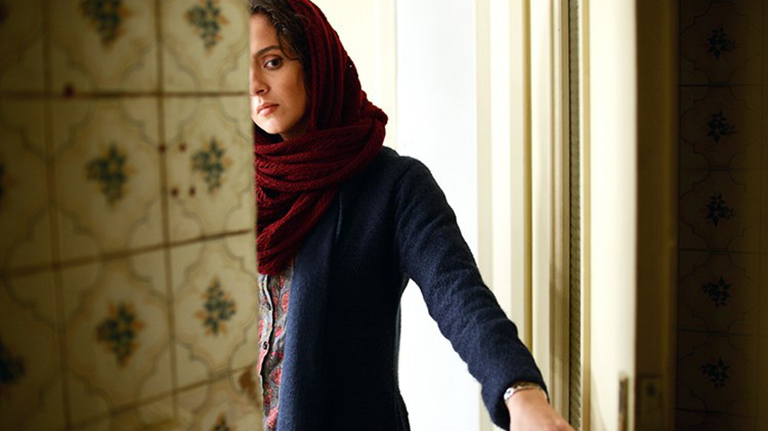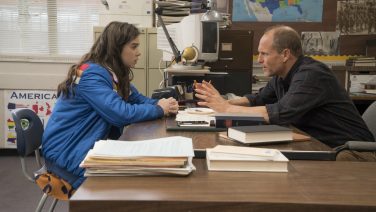Big Screen: The Salesman
March 15th 2017
James Ross

Images via IMDB
If you’ve only heard one thing about The Salesman, it’s probably that its director did not attend the Oscars ceremony this year to accept his award – the second time any Iranian has won one of the coveted gold statues.
The Salesman (Persian: Forushande, 2016) is the second film by Asghar Farhadi to win the Academy Award for Best Foreign Film, after acclaimed drama A Separation in 2012. The Iranian director decided to boycott the event in protest of Trump’s immigration ban, which forbids people from Iran and six other nations from entering the United States.
Fittingly, his refusal to appear is probably the best demonstration of what makes Farhadi’s films so compelling. Rather than loudly proclaim his dissent, it was the lack of his presence that was keenly felt on Oscars night. In much the same way, he proves in The Salesman that it’s the absence of information that can preoccupy our minds the most, leaving our imaginations to fill in the gaps.
In the film we meet Emad (Shahab Hosseini) and Rana (Taraneh Alidoosti), a married couple who star together in a production of Arthur Miller’s Death of a Salesman. When the building they live in starts to collapse, they’re forced to move into a new apartment, which they slowly realise was formerly occupied by a sex worker. Their transition is going well until Rana buzzes someone in to the apartment building, and Farhadi lets the camera linger on that open door just long enough to make us dread that things are about to take a turn for the worse – and rightly so.
What happens to Rana happens off-screen, but Emad learns that she was assaulted by a stranger in their bathroom. The aftermath sets off a tense psychological drama in which – with Rana hazy on the details and Emad not privy to the action – the shadowy spectre of the assault weighs heavy on the characters’ minds, and the audience feels their anguish.

Farhadi downplays the dramatic catalyst of the film in order to focus on the ways that it affects the mundane parts of Emad and Rana’s lives afterwards. Their interactions become muted, forcing us to extrapolate their feelings from their actions. It means The Salesman is a bit of a gruelling watch, suspending its audience in a tense state of uncertainty, but one that is tremendously rewarding if you’re willing to push through.
Farhadi’s characters are decent people, but they’re also flawed human beings who make decisions that are difficult to understand. Emad plots revenge on the stranger who assaulted his wife, while Rana just wants to forget about the whole incident. Clearly dealing with post-traumatic stress, Rana acts as a counterpoint to Emad’s impotent rage, framing his desire for justice in a different light and leaving the film at a morally ambiguous point.
Set against a backdrop of modern day Iran, The Salesman can’t avoid the expectations and preconceptions. The social and political pressures of the country are never explicitly addressed, but they’re nevertheless there, playing as much a part in Emad and Rana’s recovery process as the strange assailant.
It seems to me that these pressures, more than anything, have trained Farhadi’s directorial sensibilities. He is well aware that unspoken words and restraint in action can be the most powerful – especially when they’re placed under a spotlight.
Despite (and perhaps because of) not turning up for the Oscars, Asghar Farhadi has well and truly arrived as a star of modern cinema. If you’re in the mood for a gripping film that asks as many questions as it answers, or just want to get to know one of the masters of Iranian film, I highly recommend giving this one a shot.
Want more Big Screen? Subscribe to the podcast.





